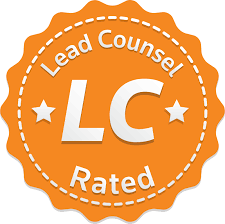What is Probate?
The probate process
can be very simple or complex depending on the facts of each case. The grieving and trauma caused by the loss of a loved one is typically the first thing on everyone’s mind. One must not forget, however, that the loss of a loved one will also require distribution of the deceased’s assets and debts. In order to distribute assets and pay liabilities, a probate estate is typically required. The probate attorneys at the Law Offices of Bergman & Yiangou
have years of experience with the probate process. If you have suffered from the loss of a close relative or friend, please contact Bergman & Yiangou for a free consultation. Our attorneys will guide you through the probate process so that the administration of the probate estate is managed efficiently.
What is probate?
Probate
is the process by which the estate of a deceased person is administered. By administering the probate estate, the deceased’s assets will be distributed, and all debts and claims against the estate will be resolved. The probate court in the county where the deceased lived will supervise the probate process. The duties of the probate court are to interpret the will (if applicable) of the deceased, appoint an executor of the estate, and administer the assets and liabilities of the estate. It is the duty of the probate court to ensure that all claims against the estate are satisfied and all assets are distributed per the instructions of the will, or pursuant to Ohio probate law.
What types of assets are administered in probate?
Some assets are non-probate assets. For example, assets that are to be distributed according to a trust, real estate held by way of a survivorship deed, as well as life insurance and retirement accounts where beneficiaries are named are non-probate assets. Typically, probate assets are solely in the deceased’s name. Examples of probate assets include motor vehicles, bank accounts, investment accounts, stocks, bonds, boats, and homes. Determining whether an asset is probate or non-probate should be left up to an experienced attorney.
What is the probate process?
To administer an estate, several things must be completed. This can include the following:
- Filing a probate application for authority to administer the estate and admit a will to probate (if a will exists)
- Appointing the fiduciary of the estate. The fiduciary is the person in charge of administering the decedent’s estate and providing
- accounting of the administration to the court.
- Gathering probate assets and determining the value of the assets
- Selling real estate or estate property to pay creditors
- Payment of any taxes
- Distribution of the assets of the estate
What if there is no will?
If the decedent did not leave a will, the decedent’s probate property will be distributed to the closest surviving relative. This distribution will follow Ohio probate law.
What if the will is unclear as to the instructions of the deceased?
If the language of a will is unclear, a hearing will be held to determine the intent of the deceased. The probate court will then decide the intent of the deceased’s will based upon testimony of parties and presentation of evidence.
How long does the probate process take?
The length of the probate will depend on the number of assets and debts to be administered. Typically, the more assets and debts, the longer the probate process will take. If a full estate administration is required, the process will last a minimum of six months, though typically will require a longer period of time. Often the decedent will leave real estate, which may or may not need to be sold. Some larger estates can take more than a year to administer completely. Smaller estates will be completed in a much shorter time frame.
What are the probate court costs?
A filing fee will be assessed in any probate case. Typical filing fees of $125 – $230 would be required for a full estate administration.
Whether your estate is large or small, an experienced probate attorney at the Law Offices of Bergman & Yiangou is available to help. Our attorneys will review your case according to Ohio probate laws to determine the best course of action and ensure that your probate estate is properly administered. Contact our dedicated probate lawyers today for your free initial consultation.




